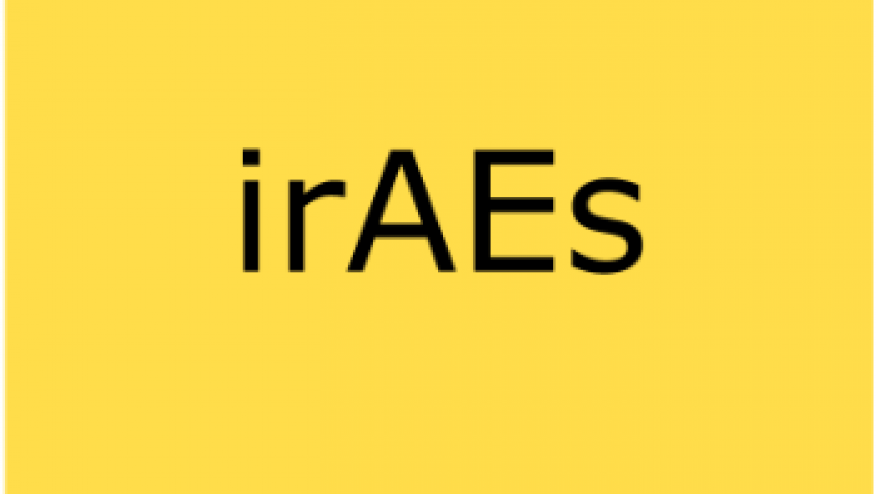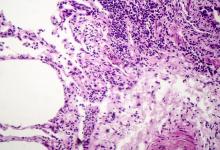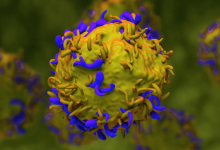Update on Checkpoint Inhibitor Safety Save

“Autoimmunity is the Achilles heel of onco-immunotherapy” per Dr. Leonard Calabrese, which leaves a dilemma for rheumatologists.
Onco-immunotherapy, or the use of checkpoint inhibitors (CTLA-4 agonists, or blockers of PD-1/PD-L1), is the blocking of T cell regulation of immune responses. Onco-immunotherapy induces immune dysregulation to allow patients to develop an immune response to their cancer cells. An unfortunate side effect for patients taking onco-immunotherapy is often autoimmune-like diseases referred to as immune adverse reactions (irAEs). Studies in France and the United States (Kostine Marie, presented in EULAR) have shown that irAEs can be a good prognostic sign, suggesting these therapies are working. Rheumatology is faced with new problems as onco-immunotherapies may induce new chronic diseases in multiple different forms secondary to the treatment.
Between EULAR 2018 and ACR 2018 there has been increasing interest regarding irAEs. At this past ACR in November, multiple descriptive abstracts were presented discussing phenotypic risk stratification as well as treatment of irAE patients. Institutions have begun to develop multi-disciplinary tumor boards to discuss irAEs and dedicated irAEs clinics are being opened.
irAEs can affect any organ with a variety of autoimmune manifestations; these can include Sheehan’s Syndrome (infarct of the pituitary) and autoimmune induced hypothyroidism, as well as a myriad of all possible rheumatic disease related irAEs the most common are arthralgias, arthritis, myositis, PMR, intestinal nephritis and myocarditis. 20-43% of treated patients develop severe irAEs, with onset being drug dependent, but typically occurring within the first 12 weeks of immunotherapy exposure.
There are over 10,000 patients who have already been treated with onco-immunotherapy drugs and more than 164 new onco-immunotherapies are in development. Questions arise over patients with pre-existing autoimmune diseases and whether the autoimmune disease become worse due to onco-immunotherapy treatments. Additionally, there are questions about patients with preexisting autoantibodies and whether or not they are at risk for developing symptomatic disease. As rheumatologist, a question emerges surrounding the treatment of patients with active cancer who now have upregulated immune systems. Traditionally, patients with certain cancers cannot be exposed to certain DMARDs or anti-TNFs. There are a growing number of case reports describing the use of such drugs to treat irAEs.
A consortium is being created to develop a multicenter longitudinal prospective registry, and an international effort to begin to identify potential risk markers as well as possible mitigating steps to decrease the incidence of these adverse effects. The consortium will additionally focus on creating a patient “voice in this” benefit-to-harm scenario. Patients are now faced with the “C” word and told they have cancer and might respond and can live; however, they may develop chronic autoimmune diseases related to the lifesaving therapy.
In summary, irAEs will become more common with the use of onco-immunotherapy, thus as rheumatologist we will need to begin to develop a framework to risk stratify and understand treatment.
We know you have questions and the consortium is planning to work on developing guidelines and treatment options in a thoughtful collaborative manner. Please do not hesitate to email with questions at Alexa.meara@osumc.edu.










If you are a health practitioner, you may Login/Register to comment.
Due to the nature of these comment forums, only health practitioners are allowed to comment at this time.